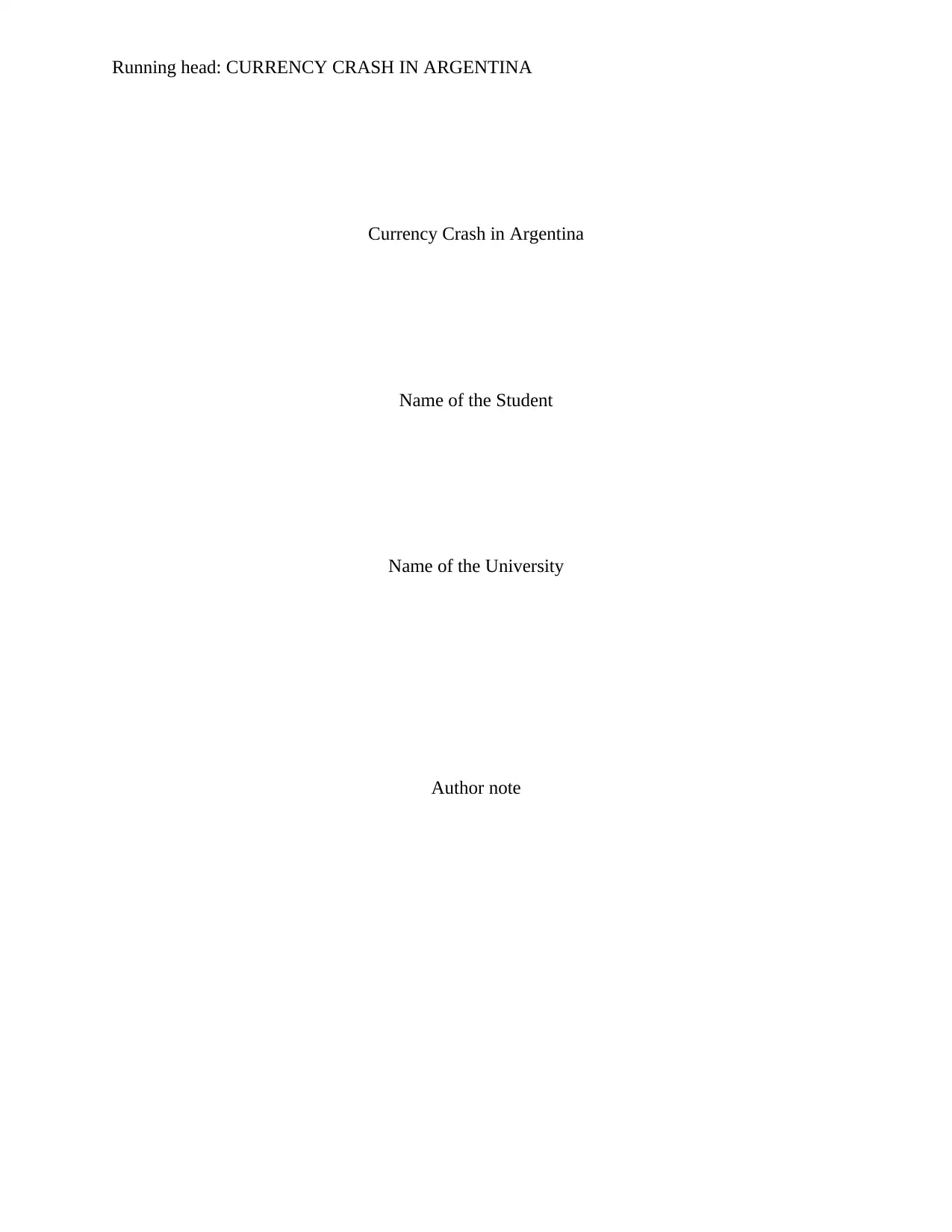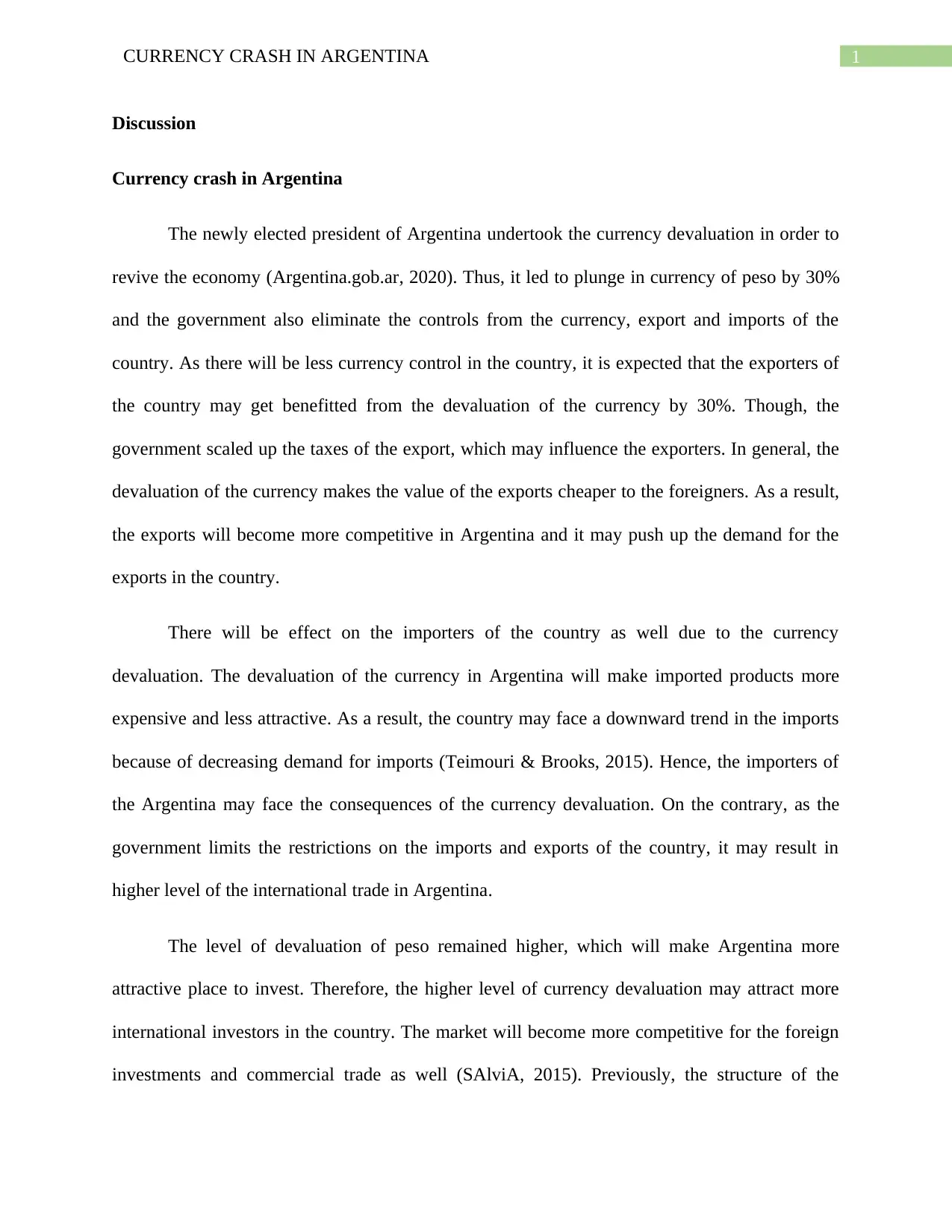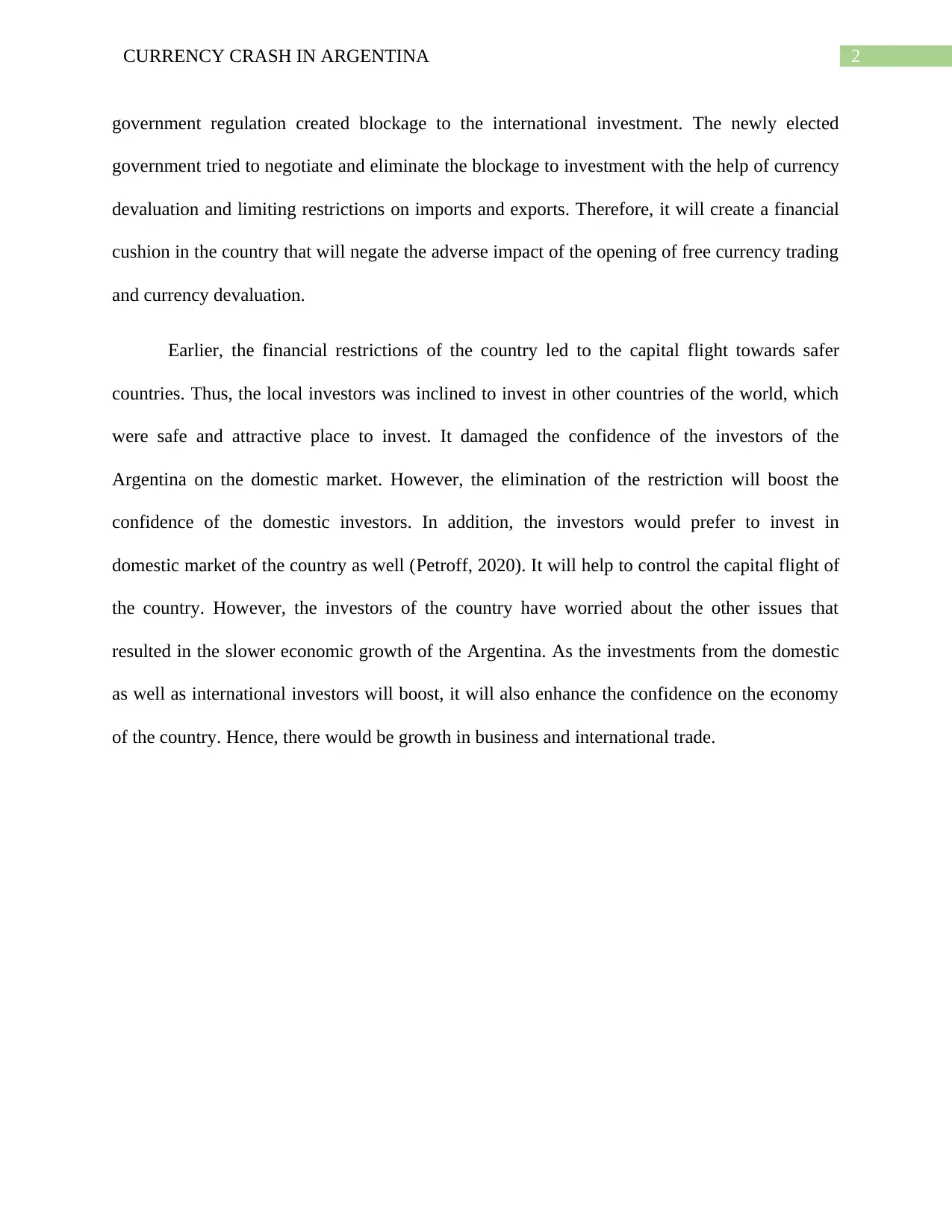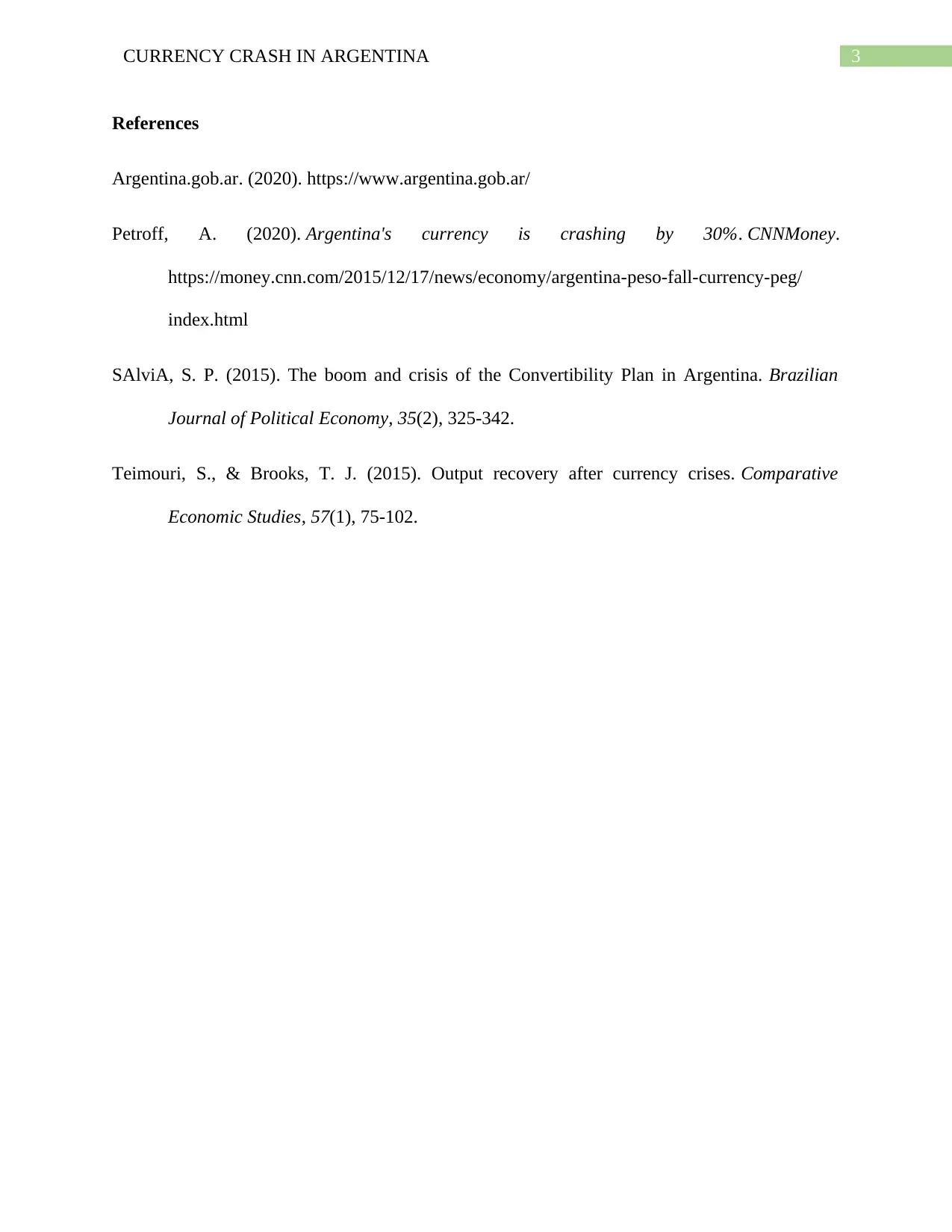International Business: Argentina Currency Crash Impact Report
VerifiedAdded on 2022/08/20
|4
|689
|15
Report
AI Summary
This report examines the currency crash in Argentina following the newly elected president's decision to devalue the peso. The analysis explores the impact of this devaluation on exports and imports, highlighting how cheaper exports could boost demand and more expensive imports could decrease demand. The report also considers the effects of removing currency controls on international trade and investment, emphasizing the potential for increased foreign investment due to a more competitive market. Furthermore, it discusses how the elimination of restrictions could restore investor confidence and mitigate capital flight. References from Argentina.gob.ar, CNNMoney, and academic journals provide context for understanding the economic implications of these policy changes and their effects on the country's financial landscape and international trade dynamics.
1 out of 4











![[object Object]](/_next/static/media/star-bottom.7253800d.svg)